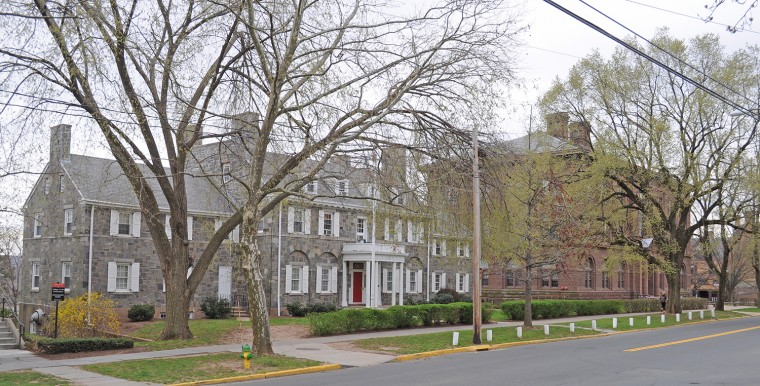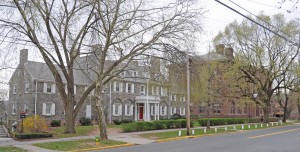Connecticut Supreme Court Reverses Trial Court DKE Decision


On March 5, the Connecticut Supreme Court reversed the 2017 trial court’s judgement in Kent Literary Club v Wesleyan. This judgment had imposed damages on the university, requiring Wesleyan to contract with the owners of the Delta Kappa Epsilon (DKE) residence to house students.
Wesleyan officials said they are pleased by the Connecticut Supreme Court’s decision and hoped that it would put an end to the matter, though they noted that the fraternity may choose to continue its litigation.
In fall of 2014, after receiving much input from the campus community and consulting with the Board of Trustees, Wesleyan announced that all residential fraternities had to become fully co-educational over the following three years. Wesleyan knew that for many students and alumni, their experiences in residential organizations like DKE and others were truly formative—the basis of lifelong relationships and the development of leadership skills. The university saw no reason why these experiences should be confined to male residences or offered only on a “separate but equal” basis. Furthermore, Wesleyan was also well aware of the safety issues that had occurred at the fraternity houses, which the institution had an obligation to address.
The move to co-educate residential fraternities was intended to make Wesleyan a more equitable and inclusive campus. Wesleyan has been committed to co-education since the 1970s, and university officials said it was time to end the exception that allowed all-male organizations to house students in the private residences they own on the border of campus.
When Wesleyan announced this move to co-education, DKE made clear that it was opposed to the policy. After extensive negotiations with the fraternity, Wesleyan concluded that the organization was unprepared to begin a process to accept women on full and equal terms. The organization sued the university in 2015, and Friday’s decision reverses the trial court’s judgment.
Since 2015, DKE has operated as a non-residential student organization. Before this semester began, however, that organization, along with a number of its members, was found responsible by a Student Conduct Board for a range of violations related to off-campus hazing activities, which were also a serious violation of university and governmental COVID-19 protocols. As a result, the Student Conduct Board suspended DKE as a student organization of any type, for at least two years. The DKE house remains off-limits to students.
Wesleyan is steadfastly committed to ensuring that its residential program is safe, fair, and accessible for all students, regardless of gender. The university is also committed to ensuring that all student organizations abide by university rules, particularly during the pandemic.

